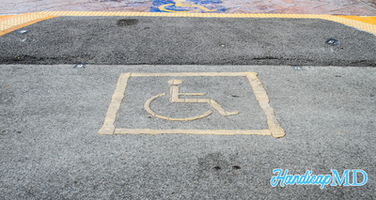
Cardiovascular Conditions and DMV Handicap Parking Permits
Introduction
Welcome to our comprehensive guide on cardiovascular conditions and DMV handicap parking permits. In this article, we will explore the relationship between cardiovascular conditions and the process of obtaining a DMV handicap parking permit. If you or a loved one is affected by a cardiovascular condition and require accessible parking, this article will provide valuable information and guidance. We will cover the eligibility criteria, application process, frequently asked questions, and more. So let's dive in and learn how to navigate the intersection of cardiovascular conditions and DMV handicap parking permits.
Cardiovascular Conditions and DMV Handicap Parking Permits
Living with a cardiovascular condition can present numerous challenges, especially when it comes to mobility. Cardiovascular conditions encompass a range of diseases and disorders that affect the heart and blood vessels. Examples include coronary artery disease, heart failure, arrhythmias, and hypertension. These conditions can significantly impact a person's ability to engage in daily activities and necessitate the need for accessible parking spaces.

DMV disabled placards, also known as disabled parking permits or placards, are issued by the Department of Motor Vehicles (DMV) to individuals with disabilities. These permits allow holders to park in designated accessible parking spaces, providing closer proximity to buildings and facilities. It ensures that individuals with mobility limitations, including those with cardiovascular conditions, can access essential services without undue physical exertion.
Eligibility for DMV Handicap Parking Permits
To qualify for a DMV disabled placards based on cardiovascular conditions, individuals must meet specific eligibility criteria. The requirements may vary slightly depending on the jurisdiction, but the general guidelines remain consistent. Some common eligibility criteria include:
Medical Certification: A medical professional, such as a physician or cardiologist, must certify that the individual has a cardiovascular condition that severely impairs their ability to walk.
Mobility Limitations: The cardiovascular condition should significantly limit the person's ability to walk or require the use of assistive devices like canes, walkers, or wheelchairs.
Duration of Impairment: The mobility limitations should be expected to last for a minimum period, usually six months or longer.
It is essential to consult the specific regulations and guidelines provided by your local DMV to ensure you meet the eligibility requirements for a disabled placard based on your cardiovascular condition.
Applying for a DMV Handicap Parking Permit
Now that we understand the eligibility criteria, let's explore the process of applying for a DMV disabled placards. The exact steps may vary depending on your location, but the general process is as follows:
Consultation with a Medical Professional: Schedule an appointment with your primary care physician or cardiologist to discuss your cardiovascular condition and the need for a handicap parking permit. They will evaluate your condition and provide the necessary medical certification.
Obtain the Application Form: Visit your local DMV office or their website to obtain the application form for a handicap parking permit. The form may be available for download or provided in-person.
Complete the Application: Fill out the application form with accurate and detailed information. Ensure that you provide all necessary medical documentation, including the certification from your medical professional.
Submit the Application: Submit the completed application form and accompanying documentation to your local DMV office. You may need to pay a nominal fee, which varies depending on the jurisdiction.
Wait for Approval: The DMV will review your application and medical documentation. If everything is in order, they will issue a DMV disabled placard, either in the form of a placard or license plate.
It is crucial to follow the specific instructions provided by your local DMV to ensure a smooth application process. Some jurisdictions also offer online submission options, making it even more convenient to apply for a disabled placards.
FAQs (Frequently Asked Questions)
1. Can individuals with cardiovascular conditions apply for a DMV disabled placards ?
Yes, individuals with cardiovascular conditions that severely impair their ability to walk can apply for a DMV disability card. They must meet the eligibility criteria set by the local DMV, which usually involves medical certification and mobility limitations.
2. What documentation is required to apply for a DMV disabled placards ?
To apply for a DMV disabled placards, you will typically need medical certification from a qualified healthcare professional, such as a physician or cardiologist. The certification should outline the nature of your cardiovascular condition and its impact on your mobility.
3. Are DMV disabled placards valid in all jurisdictions?
DMV disabled placards are generally recognized and valid across different jurisdictions. However, it is advisable to familiarize yourself with the specific regulations and requirements of the jurisdiction you are visiting to ensure compliance.
4. How long does a DMV disabled placards remain valid?
The duration of validity for a DMV disabled placards varies depending on the jurisdiction. In some cases, permits may be issued for a specific time frame, such as six months or a year. It is essential to review the expiration date on your permit and renew it as necessary.
5. Can family members or caregivers use a DMV disabled placards?
DMV disabled placards are issued to individuals with disabilities and are non-transferable. They are intended for the use of the permit holder only. Family members or caregivers should not use the permit unless they are transporting the permit holder.
6. Can I use my DMV disabled placard in rental cars or borrowed vehicles?
DMV disabled placards are generally allowed to be used in rental cars or borrowed vehicles. However, it is advisable to check the regulations and guidelines specific to the jurisdiction you are in to ensure compliance.
Conclusion
Living with a cardiovascular condition can pose mobility challenges, but obtaining a DMV handicap parking permit can significantly alleviate some of these difficulties. By understanding the eligibility criteria and following the application process outlined by your local DMV, you can obtain the necessary permit to access accessible parking spaces. Remember to consult the specific regulations of your jurisdiction for accurate and up-to-date information.
.png)





